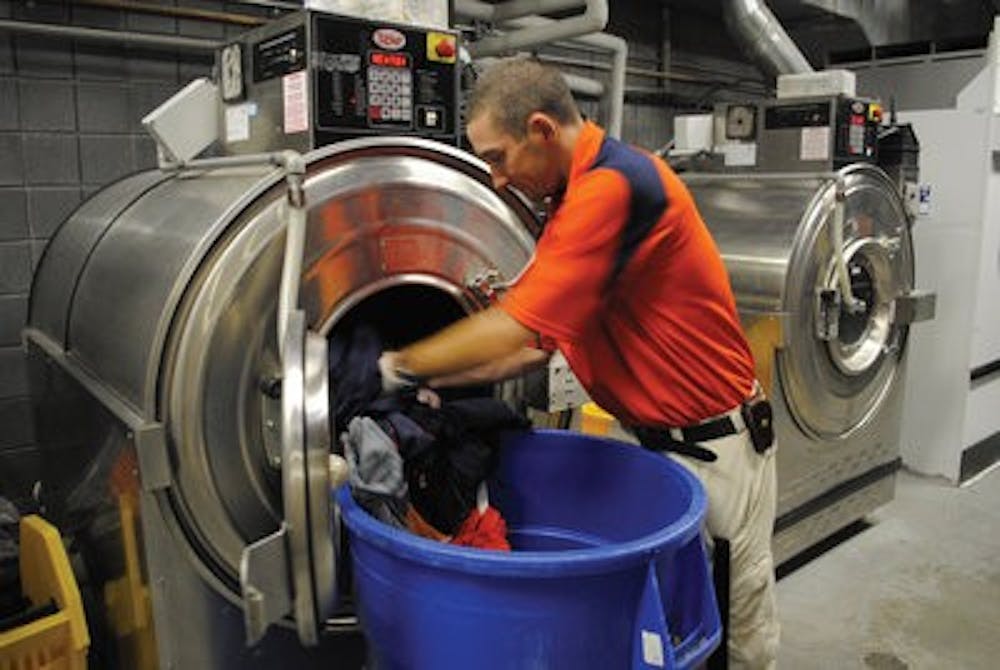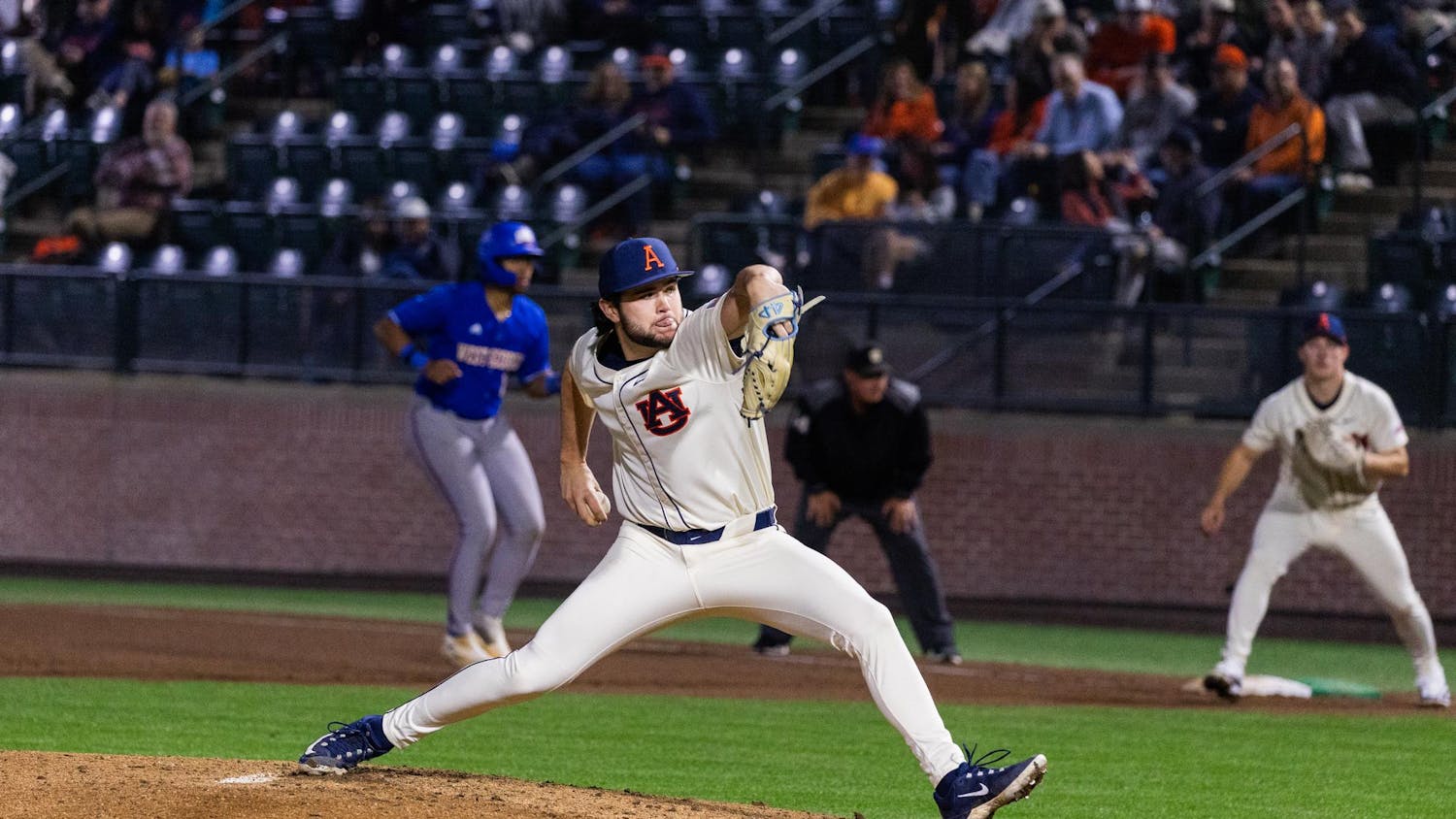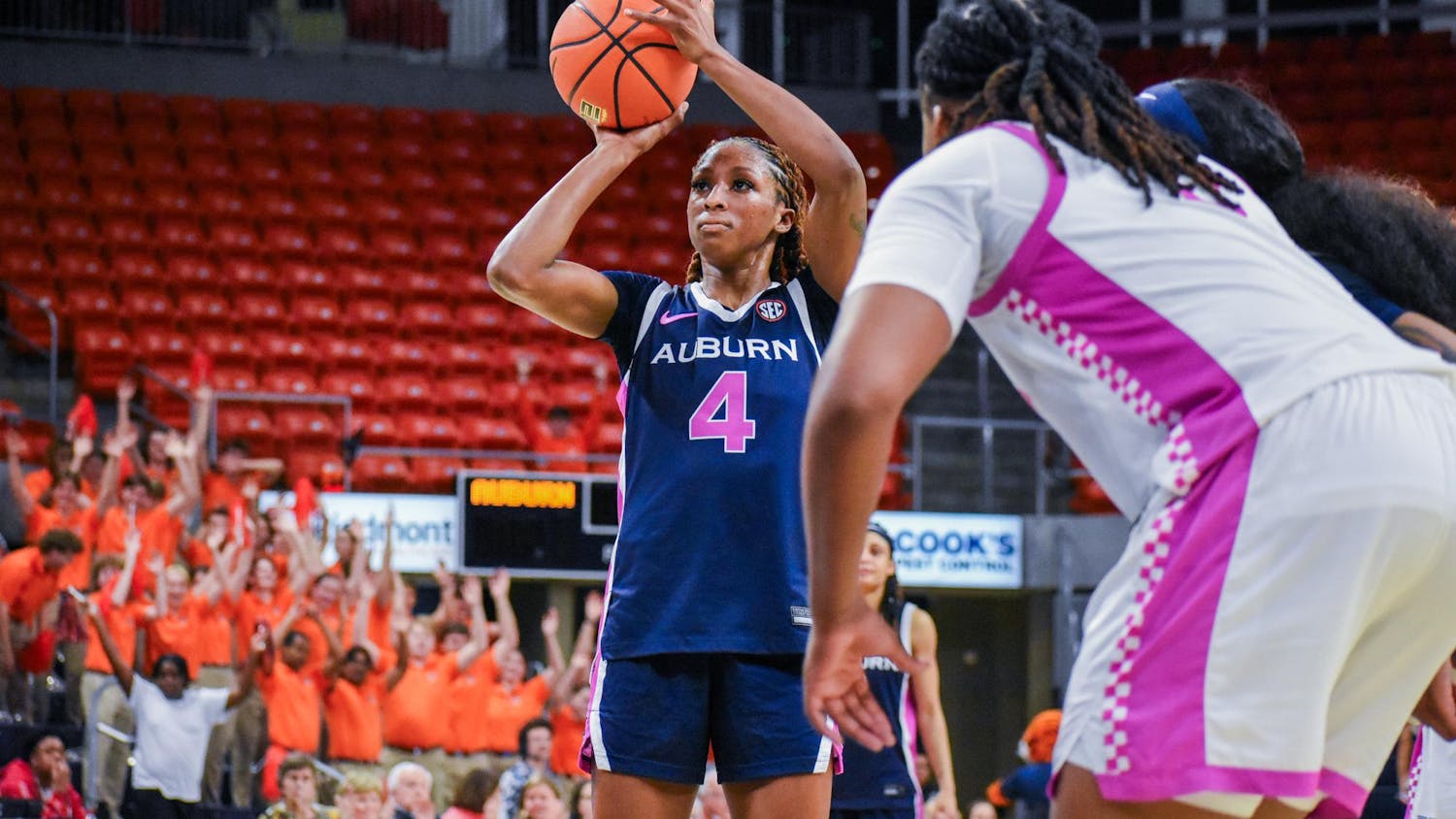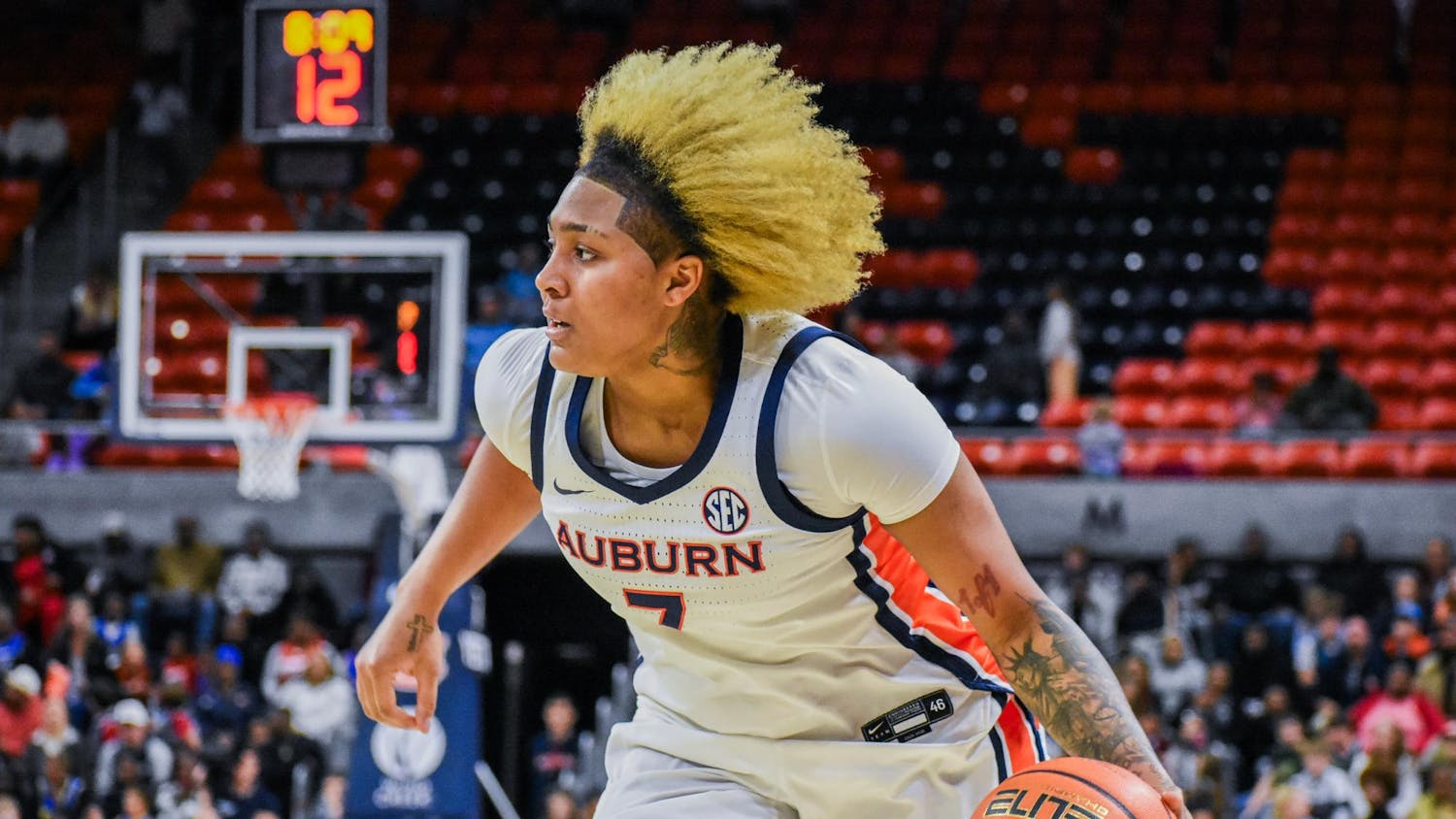For Mike "Bones" Boniol, assistant equipment manager for the football team, Saturday nights revolve around doing laundry.
After the game, the equipment staff takes all players' and coaches' uniforms and towels from Jordan-Hare Stadium to the football complex.
Boniol and company usually spend the next three hours doing laundry.
"Basically, the laundry room operates 10 to 12 hours a day," Boniol said. "There's always a load of something going on."
Laundry is done on what is known as the "loop system."
Every player has multiple laundry loops, including practice loops, workout loops and game loops.
A loop consists of whatever the player wears for that particular activity.
A game loop includes the jersey, pants, socks and towels a player used during the game.
An equipment manager at Montana State University named Peggy Durnay invented the concept of the laundry loop.
"We have a pretty good system," Boniol said. "Everything is basically sorted for us."
There are bins set up in the locker room, in which every player drops his laundry, and a number on every player's laundry loop distinguishes it from the others.
The football equipment room, located at the football field house, includes two 100-pound washers and one 125-pound dryer.
"Yes, we are in charge of Trooper's towel," Boniol said. "It takes a while. This isn't just your typical 'dump a scoop of Tide in and you're good to go' laundry."
All towels used by trainers, players and coaches are washed and dried along with uniforms.
The football equipment staff uses Formula One by Ecolab for the laundry.
Boniol said it is more intensive than washing laundry in your washing machine at home or at a Laundromat.
The machines are programmed with specialized cycles for each sport or stain.
The last step in the process, after everything has dried, is called Sports O Zone, which sanitizes to get rid of harmful bacteria that can cause viruses like staph infections.
"I've never thought about calculating it before, but I would say in a calendar year we probably use about 2,000 pounds of detergent," Boniol said.
Calloway and his staff handle the laundry for the soccer, baseball, softball, track and field and even equestrian teams.
"Sports don't really have an offseason anymore," said Dale Calloway, Olympic sports equipment manager at Auburn.
Calloway said there are laundry facilities at Beard-Eaves Memorial Coliseum, Auburn Arena, Samford Stadium, the soccer facility, track facility and McWhorter Center for Women's Athletics.
Calloway said a typical day starts when he makes his rounds at 7 a.m.
He and his staff usually do at least six to 10 loads per day.
His duties also include laundry from the staff locker rooms and horse pads from the equestrian team.
"It doesn't matter if we win or lose, the job for us is always the same," Calloway said.
All basketball laundry is hung up to dry, not machine dried, because basketball uniforms have ironed-on applique numbers that would be ruined if run through the dryer.
Calloway said with each sport's dirty laundry comes different problems.
For soccer, it's grass stains, for baseball and softball, it's red clay stains.
But Calloway said it's easy to switch between loads of laundry of one sport to another because the machines are programmed with different cycles.
"When someone asks me what a typical day is like for me, I say 'I drink a cup of coffee in the morning, and I go to bed at night' because no two days are the same in this business," Calloway said.
The equipment duties at Auburn may appear to run smoothly these days, but according to Mike Golden, former equipment manager, this has not always been the case.
"I've been at Auburn since 1978," Golden said. "The way we do things has changed quite a bit since I've been here. Back when I first started, the equipment manager used to love to keep the jerseys white, so we'd end up over-bleaching them. Eventually this caused the jerseys to disintegrate."
When Golden started, they used to separate every article of clothing for every sport.
Golden was an assistant with the football team for 25 years before retiring in 2002 and has stayed on as an assistant since his retirement.
"I think most people would consider this a dream job, doing this," Golden said. "Fans would love to be on the sideline and see the players every day, but don't get me wrong, it has its moments where it's a job."
Do you like this story? The Plainsman doesn't accept money from tuition or student fees, and we don't charge a subscription fee. But you can donate to support The Plainsman.





